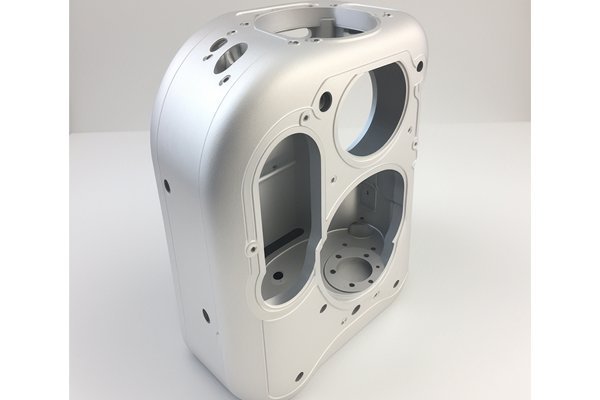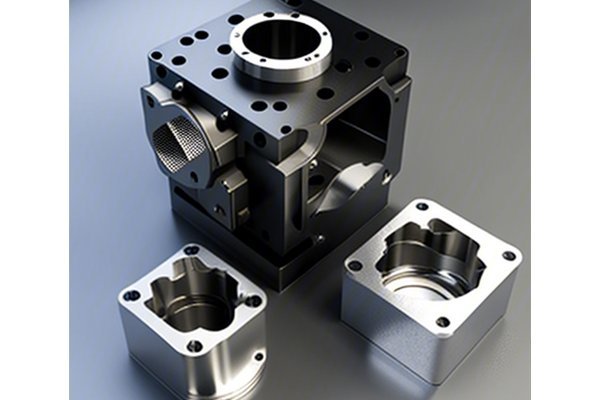Imagine being able to produce complex parts and prototypes with high precision and efficiency, all while cutting costs in terms of time and material. CNC (Computer Numerical Control) machining has revolutionized the manufacturing landscape, allowing for the creation of intricate designs that would be nearly impossible to achieve by hand. However, the success of any CNC machining project heavily depends on selecting the right manufacturer. In this blog, we will explore the essential factors to consider when choosing a manufacturer for high-quality CNC machining services.
Understanding CNC Machining
Before diving into how to choose a manufacturer, it’s crucial to understand what CNC machining is and how it works. CNC machining involves the use of computer-controlled tools and machinery to remove material from a solid block (referred to as a workpiece) to create parts with precision and repeatability. CNC machines can handle various materials, including metals, plastics, and composites, making them versatile for many industries, from automotive to aerospace.
Why Quality Matters
Choosing a manufacturer that provides quality CNC machining services can significantly impact your project’s success. High-quality components lead to better performance and durability, which can save time and money in the long run. On the flip side, poor-quality machining can lead to defects, delays, and increased costs due to rework or outright scrapping of parts.
Key Factors to Consider When Choosing a CNC Machining Manufacturer
One of the most critical factors in selecting a CNC machining manufacturer is their experience in the field. Companies with a long history of successful projects are likely to understand the nuances of CNC machining better. Look for manufacturers who specialize in the specific type of machining you require, especially if your project involves intricate designs or specialized materials.
Quality assurance is vital in any manufacturing process. When evaluating potential CNC machining manufacturers, check for their compliance with industry standards and certifications such as ISO 9001, AS9100, or TS
CNC technology evolves continually, with new innovations improving efficiency, speed, and precision. A manufacturer should stay updated with the latest CNC machines and software, offering a range of capabilities such as multi-axis machining, advanced tooling options, and rapid prototyping. Knowing the technological strengths of a manufacturer allows you to better match them with your project needs.
Different manufacturers specialize in different materials. Depending on your project requirements, you might need expertise with metals like aluminum, stainless steel, or specific plastics like POM or polycarbonate. Ensure the manufacturer you choose has extensive experience working with the materials you need and can provide samples of previous work.

A robust quality control process is essential for ensuring high-quality machined parts. Inquire about the manufacturer’s quality assurance protocols, including their approach to inspections, measurements, and testing. High-quality manufacturers are likely to have thorough procedures to detect and address defects, such as in-process inspections and post-production testing.
Evaluate the manufacturing capacity of the company to ensure they can handle your project’s scope efficiently. This involves looking at their facility size, the number of machines available, and the workforce skill set. A manufacturer with sufficient capacity can accommodate both large orders and quick turnaround times, depending on your needs.
Effective communication is critical during the manufacturing process. A manufacturer should provide prompt customer support to address any concerns or questions that arise. Pay attention to how quickly and thoroughly they respond during your initial inquiries, as this can be an indicator of their overall customer service approach.
While quality should take precedence over cost, it’s still essential to evaluate pricing to ensure it aligns with your budget. Collect quotes from multiple manufacturers and analyze what is included in those quotes. Beware of prices that seem too good to be true, as they often indicate a compromise in quality.
The speed at which a manufacturer can deliver your machined parts is vital, especially if you’re working on tight deadlines. Discuss their typical lead times and the efficiency of their production schedules. A good manufacturer will work with you to establish timelines and keep you updated throughout the process.
Finally, look for customer reviews and testimonials to gain insights into the manufacturer’s reputation. Reach out to previous clients or ask for references to better understand their experiences. Positive feedback from past customers can provide valuable reassurance about the manufacturer’s capabilities.
Selecting the right manufacturer for high-quality CNC machining services is a critical decision that affects your project’s success. By considering factors such as experience, technological capabilities, quality control processes, and customer support, you can make a well-informed choice that aligns with your manufacturing needs.
The importance of quality in CNC machining cannot be overstated; it directly impacts your product’s performance, reliability, and overall satisfaction. As you navigate the complexities of choosing a manufacturer, remember that the right partner will not only provide high-quality parts but also contribute to the success of your projects in the long run.
This blog has highlighted core technologies and considerations necessary for a successful choice. Now, as you embark on this journey, take your time to evaluate these criteria meticulously and remember the importance of quality in achieving your manufacturing goals. Choosing wisely will pave the way for efficient production and superior results, essential ingredients for success in today’s competitive landscape.






